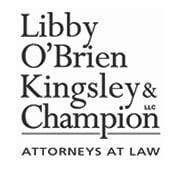Condominiums are coming into increased use, especially in Southern Maine. Condominiums are a unique form of property ownership in which thorny legal issues can arise. Management of a condo touches upon real estate, contract, insurance, corporate, nonprofit, and other areas of law.
The basic condominium structure is a property divided into individual units, surrounded by common areas in which ownership is shared by unit owners. The common areas are called “common elements.” “Limited common elements” are areas outside the individual units, but they are restricted or associated with one or more particular units. Special rules define the boundaries between the common elements and the unit, which may or may not include the drywall, windows, and doors.
A condo is created by a declaration, which acts as the founding document, or constitution, of the association. The bylaws establish additional specific rules and regulations for the condo. Generally, the resolution of many legal issues can be decided by reviewing the declaration or by-laws. In Maine, the Condominium Act, 33 M.R.S. §§1601-101 to 1604-118, provides for default rules if the declaration and by-laws are silent on an issue. The Condominium Act “fills the gap” and may provide for a rule that could govern a particular situation.
Condominium associations and their boards are treated as nonprofit organizations, with special rules for noticing and holding meetings, voting, keeping records, and governing the entity. Given that boards are often composed of volunteers, many positions are filled by laypersons without specialized training in the law or management. Issues can arise when associations and boards are not following the declaration or bylaws, discriminating against individual or groups of unit owners, or managing without adequate transparency, particularly around expenses and assessments.
Even well-run associations can face a host of problems, which can be very complicated. Resolution of any given issue may depend upon the documents, the nature of the dispute, and the composition and disposition of those in power, as well as how organized the unit owners may be.
This article is for informational and educational purposes and is not intended to be legal advice. You should consult legal counsel to assess the legal issues specific to your case. The attorneys at Libby, O’Brien, Kingsley & Champion have extensive experience in real estate and condominium law, particularly litigation and other means of conflict resolution.
